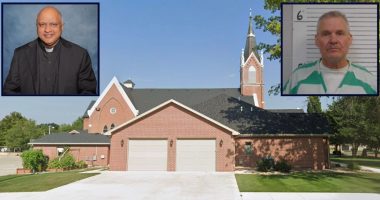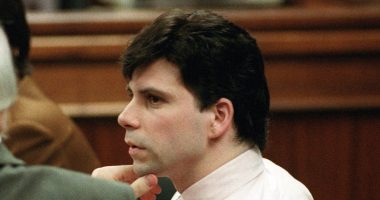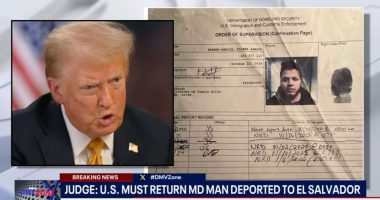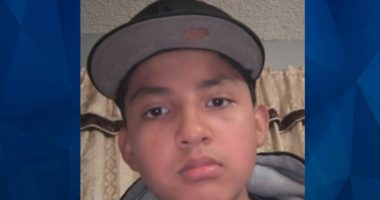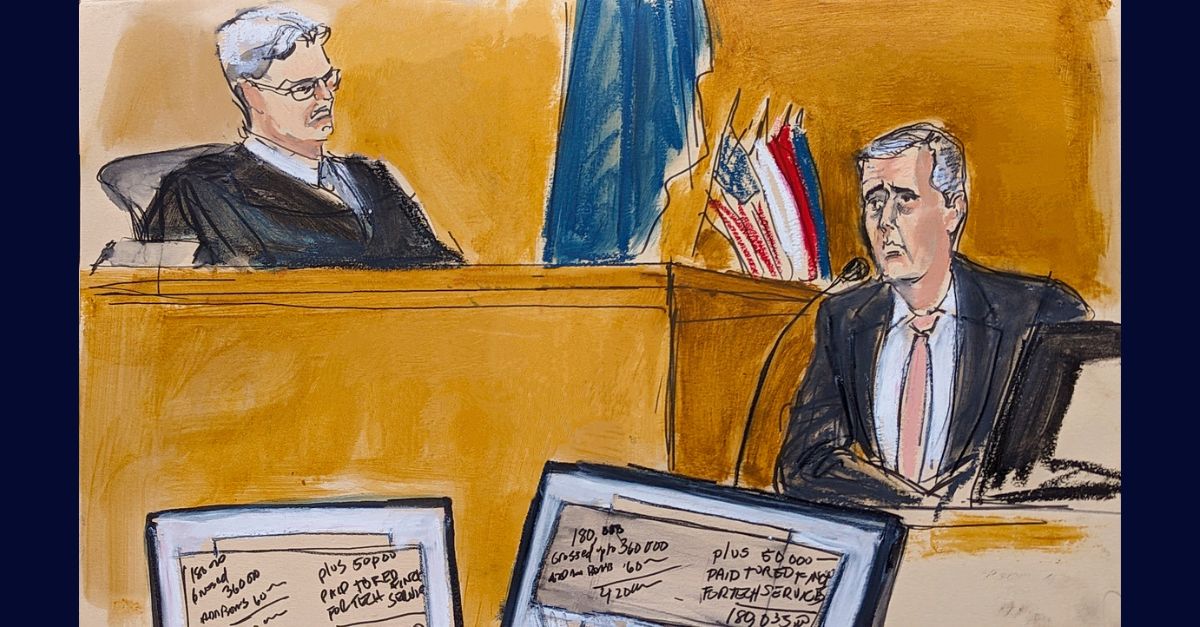
Michael Cohen, left, testifies on the witness stand in Manhattan criminal court about the calculations that Allen Weisselberg made to determine how to pay back Cohen for the money he paid to Stormy Daniels, Monday, May 13, 2024, in New York. (Elizabeth Williams via AP)
On Monday afternoon, Michael Cohen, 57, gave his version of how he came to make an infamous hush-money payment at the heart of former President Donald Trump’s criminal case in New York City.
On Oct. 7, 2016, the soon-to-be victorious presidential campaign was reeling from the release of the September 2005 Access Hollywood tape in which Trump brags to host Billy Bush about being allowed to sexually assault women due to the caliber of his celebrity.
On Oct. 10, 2016, Cohen was brought into an email chain between then-National Enquirer editor Dylan Howard and Keith Davidson, an attorney who represented adult content creator Stormy Daniels.
“Keith/Michael: connecting you both in regards to that business opportunity,” Howard’s message to the lawyers reads. “Spoke to the client this AM and they’re confirmed to proceed with the opportunity.”
To the extent there was a business opportunity, the only beneficiaries would be Daniels and Davidson. The actress’ attorney took a large cut of the $130,000 Cohen eventually paid her. Last week, the defense sought to make hay with the profit motive to cast doubts on Daniels’ credibility when she took the stand for the second time.
Cohen’s testimony on Monday in the downtown Manhattan courtroom hewed faithfully to the narrative crafted by the prosecution. The witness’ words first implicated Trump in the election-focused nature of the hush-money scheme. And later, in the movement of the money.
New trouble tapping at the Trump 2016 campaign door — for the second time in a week; of a similar sort; a genuine October surprise — sent the candidate into something of an angry frenzy, Cohen recalled, according to a report by Just Security fellow Adam Klasfeld.
“I thought you had this under control,” Trump allegedly told Cohen after hearing the Daniels news. “I thought you took care of this.”
The witness said he told his boss he thought he had taken care of Daniels, too, in 2011 when he worked to have In Touch magazine kill an interview about the alleged affair.
“Just take care of it,” Trump allegedly replied, Cohen said. “There’s a lot going on at the campaign at the time.”
But, Cohen testified, the Daniels threat also prompted the candidate to specifically address why the news would be so damaging.
“This is a disaster, a total disaster,” Cohen said, again channeling Trump as he continued to complain. “Women will hate me. Guys may think it’s cool, but this is going to be a disaster for the campaign.”
The witness volunteered the collective wisdom within the campaign at the time: Trump was polling badly with women and the double-tap of the Access Hollywood tape plus an alleged extramarital affair with an adult film star would push his numbers further underwater.
“If this situation wasn’t resolved, it would have been catastrophic to Mr. Trump and the campaign,” Cohen testified.
More Law&Crime coverage: Trump ‘never had an email address’ because he knew ‘prosecutors’ love paper trails, Michael Cohen tells hush-money trial jury
Pressed by Assistant District Attorney Susan Hoffinger as to whether Trump told him how to deal with Daniels, Cohen volunteered that the candidate suggested working with David Pecker, 72, the onetime CEO of the National Enquirer‘s parent company, American Media Inc., according to a report by MSNBC personality Katie Phang.
But, Trump allegedly advised his then-fixer not to take care of things too fast and to make sure the process of killing the story was pushed back past the 2016 election — another potential point for the state depending on whether or not jurors took Cohen’s word for it.
“If I win, it won’t have any relevance,” Trump allegedly told his underling. “If I lose, I don’t really care.”
So, Cohen got to work — communicating with Davidson to keep the story under wraps and slowing things down as best he could. But, as the process dragged on, Daniels’ attorney grew increasingly frustrated, accurately sensing the admitted delay tactics afoot.
Cohen said he delayed things “because after the election, it wouldn’t matter.”
Q: According to who?
A: According to Mr. Trump.— Adam Klasfeld (@KlasfeldReports) May 13, 2024
On Oct. 17, 2016, Davidson had had enough stalling and, in an email, said Daniels considered the proposed agreement “cancelled and void.” Later that same day, Cohen called Trump and got his voicemail.
On Oct. 18, 2016, Melania Trump sent Cohen a text message to call her husband on his cellular phone. During the ensuing conversation, Cohen testified, Trump said he had spoken to friends about Daniels’ allegation — and that Trump’s friends, citing his immense wealth, advised him to pay the hush-money because “it’s $130,000.”
Cohen testified that Trump advised him to work it out with Allen Weisselberg, 76, a former top Trump accountant who would later be convicted of various and wholly unrelated financial crimes.
More Law&Crime coverage: ‘Whatever he wanted’: Michael Cohen discusses his onetime close relationship with Trump, says he recorded phone call so National Enquirer publisher would ‘remain loyal’
The witness went on to say that he and the accountant went back and forth about who would front the money for a while.
“You’re making seven figures,” Cohen recalled telling Weisselberg — and then demanding: “Why don’t you pay it?”
But, the accountant allegedly retorted, he had a cash flow problem due to commitments to his grandchildren’s summer camp and tuition.
Eventually, Cohen said “because of the urgency,” he agreed to pay Davidson using the shell company, Essential Consultants LLC.
There was, however, one caveat: Cohen testified that he would have never been able to afford $130,000 unless he was sure he was going to be paid back. And, he testified, both Weisselberg and Trump explicitly told him that he would be reimbursed.
That testimony marked another win for the prosecution on Monday — delivering, in reverse order, a tidy enough story for potential guilt.
The state’s theory of the case is that Cohen was methodically repaid by the 77-year-old defendant — via forged paperwork from his namesake family business — for $130,000 the erstwhile fixer spent to stop Daniels from going to the press, if only for a while.
And, in the end, Cohen received some $420,000 throughout 2017 from Trump for what was marked down in the books as legal services. The state says those payments included the hush-money total.
While those allegedly fraudulent payments, receipts, and ledger entries would on their own be considered small-bore misdemeanors in the Empire State, the combination of an alleged conspiracy to influence an election is what District Attorney Alvin Bragg has fashioned into a felony case against the 45th president.
Have a tip we should know? [email protected]


